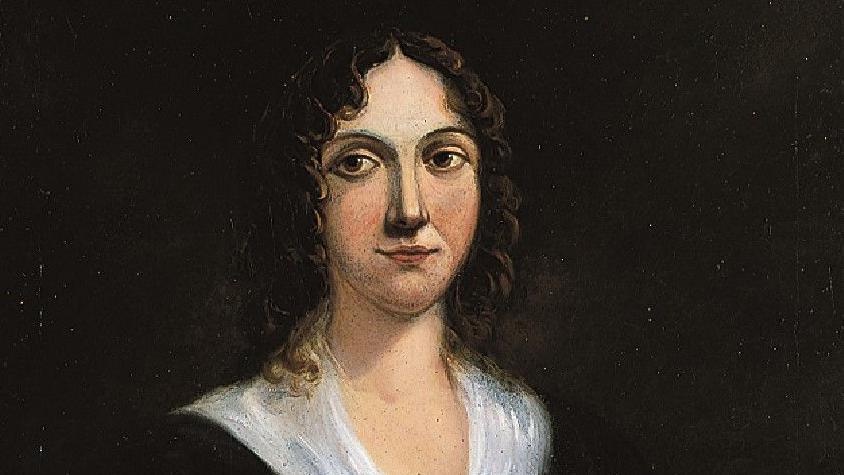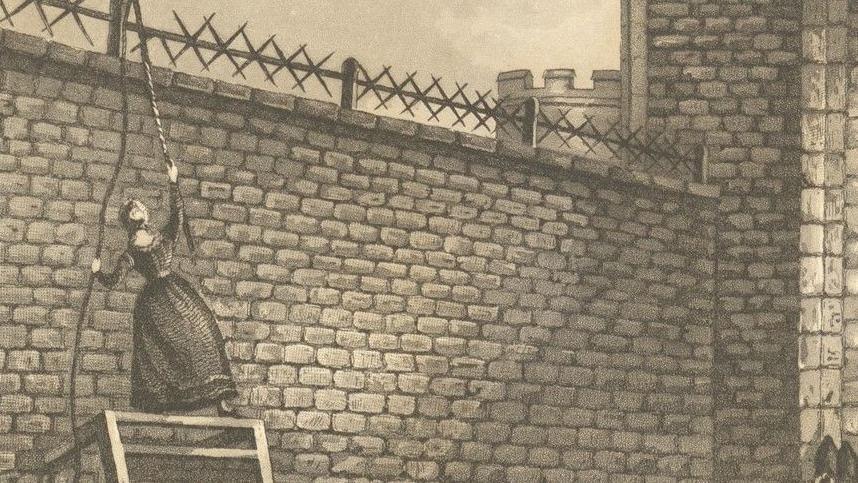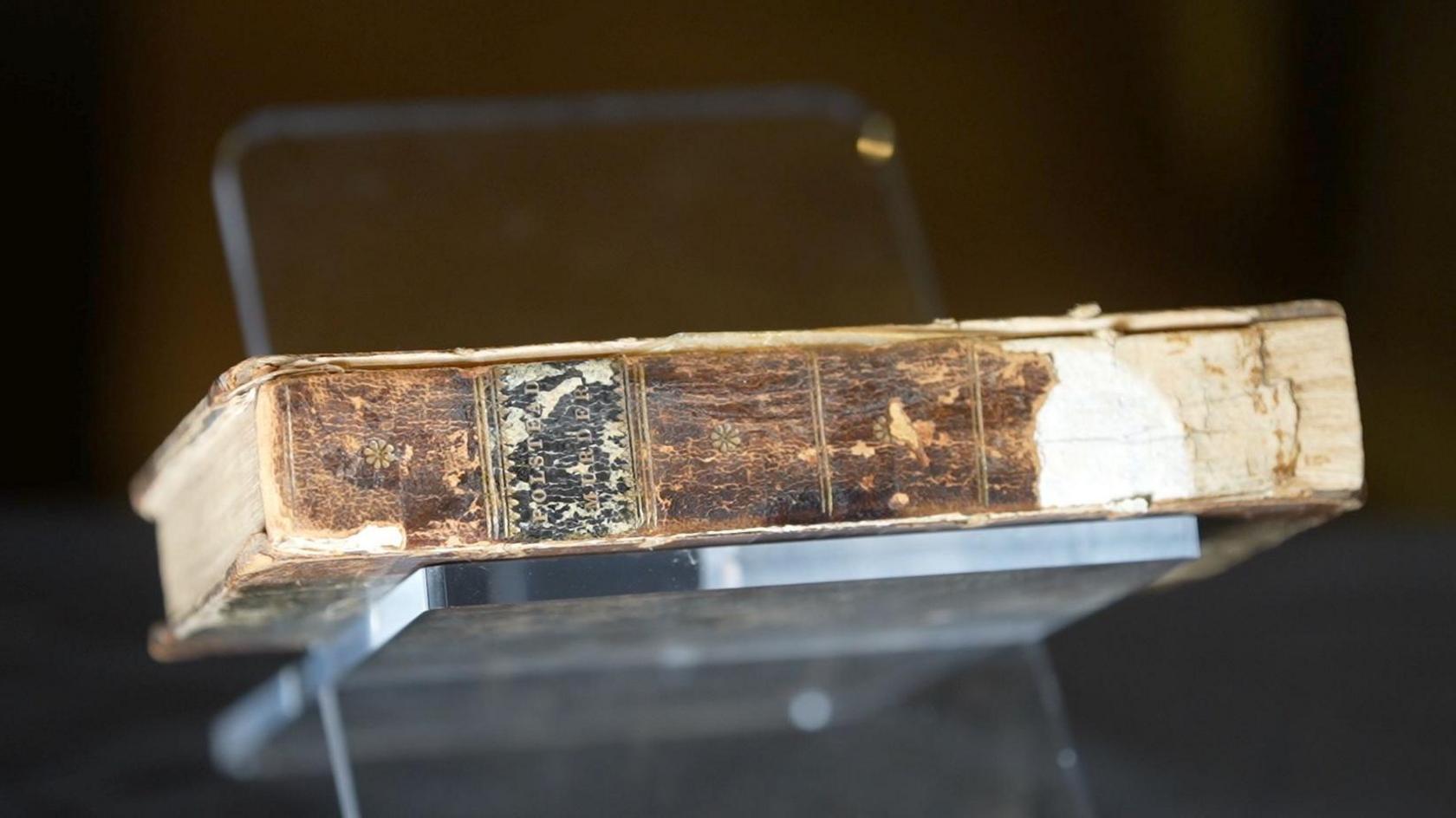Notorious horse thief letters on show in UK first

Margaret Catchpole was twice given a death sentence and then transported to Australia
- Published
Letters written by a notorious criminal who escaped jail but was eventually transported to Australia are going on show for the first time in the UK.
Margaret Catchpole, who lived in Nacton, Suffolk, was born in 1762 and gained infamy for horse theft and breaking out of Ipswich Gaol.
A death sentence was reduced to transportation and in 1801 she left for Australia where she later received a pardon and became a midwife and farmer before her death in 1819.
Letters to her family and a former employer, showing her wish to "return to my own native land", are going on display as part of Suffolk Archives' new exhibition Behind Bars.
Catchpole's story will be told in the exhibition through her letters, which are currently in transit on loan from the National Library of Australia and the State Library of New South Wales.
The county council, which is running the event, said Catchpole was a "servant girl turned notorious horse thief".
"Margaret's daring escape from Ipswich jail, her capture, and eventual transportation to Australia made her a Suffolk legend."
In one of the letters sent from her exile in Australia, she asked for a message to be sent to her former employer, the Cobbold family in Ipswich.
"Pray go to Mrs Cobbold and tell her that I hope she will send me word on how all the good family do for I long to hear from them all," she wrote.
"She had no doubt that I was worthy of all the favours that was shown to me as I behaved myself so well since I came here.
"But if I could but once return to my own native land what a happy woman should I be."

An image shows Catchpole breaking out of prison in Ipswich
Nadia Cenci, Suffolk County Council's cabinet member for communities, said: "It's wonderful to welcome Margaret Catchpole's letters back to Suffolk, where her extraordinary story began.
"Behind Bars shines a light on her courage and our county's rich, and sometimes lawless, past."
The letters will be on display as part of the exhibition Behind Bars - Suffolk's Criminal Past at The Hold in Ipswich from 24 October to 17 January.
Alongside them, the exhibition also includes details of the Red Barn Murder, a case which shocked Georgian Britain as William Corder was convicted of killing a woman in 1827.
The history of policing and the way the county is policed today will also be examined.
Get in touch
Do you have a story suggestion for Suffolk?
Follow Suffolk news on BBC Sounds, Facebook, external, Instagram, external and X, external.
- Published22 April

- Published15 April
